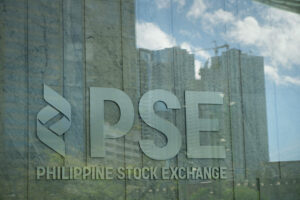




January Economic Update: Growth slows, prices rise
 DOWNLOAD
DOWNLOAD

Inflation Update: Up, up, and away?
 DOWNLOAD
DOWNLOAD

Quarterly Economic Growth Release: Growth takes on a slower pace
 DOWNLOAD
DOWNLOAD


Philippine Stock Exchange expects six IPOs in 2025

The Philippine Stock Exchange, Inc. (PSE) is expecting to have six initial public offerings (IPOs) for 2025, according to its top official.
“I think we can do six IPOs for next year. I hope we can get three or four big ones and then maybe some small and medium ones,” PSE President and Chief Executive Officer Ramon S. Monzon told reporters on the sidelines of a forum in Taguig City last week.
Mr. Monzon said west zone water concessionaire Maynilad Water Services, Inc. and the owner of integrated resort Okada Manila are some of the expected IPOs next year.
“We have Maynilad. I have been talking to them. We’ll try to see if Okada Manila (can list as well),” he said.
Under its legislative franchise, Maynilad needs to become a publicly listed firm on or before 2027 and offer at least 30% of its outstanding capital stocks within five years from the grant of the franchise.
The PSE will likely miss its goal of six IPOs for 2024 as there have only been three IPOs so far, namely, gold and copper mining company OceanaGold (Philippines), Inc. as well as renewable energy companies Citicore Renewable Energy Corp., and NexGen Energy Corp.
The local bourse is set to have its fourth public listing in November with the planned IPO of Cebu-based fuel retailer Top Line Business Development Corp.
Some of the highly anticipated companies that have deferred their public listing plans include the real estate investment trust of the Sy-family’s SM Prime Holdings, Inc., Razon-led Prime Infrastructure Capital, Inc., and electronic wallet GCash.
Meanwhile, Mr. Monzon said the PSE is expecting to raise up to PHP 150 billion in capital for 2025.
“Next year, if the market is still like what it is now, it can do PHP 140 [billion] to P150 billion in capital raising,” he said.
Capital raised in the PSE is expected to reach PHP 89 billion this year, according to Mr. Monzon, which is lower than the market operator’s target of PHP 175 billion.
Analysts are anticipating better market conditions next year as the US Federal Reserve and the Bangko Sentral ng Pilipinas (BSP) have started their easing cycles.
The BSP has so far slashed borrowing costs by a total of 50 bps since August, bringing the key rate to 6%. — Revin Mikhael D. Ochave
This article originally appeared on bworldonline.com





 By BusinessWorld
By BusinessWorld